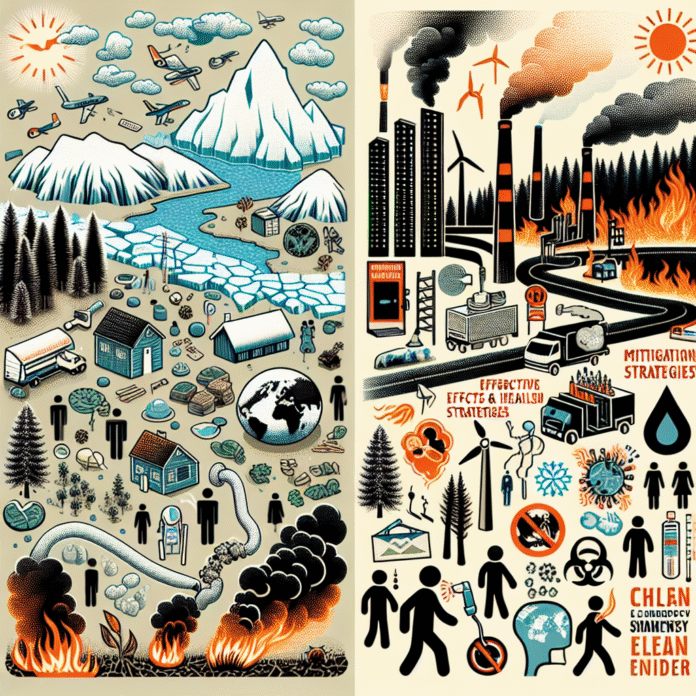Climate Change and Its Impact on Health and Solutions for Mitigation
“`html
Climate Change and Its Impact on Health: Understanding the Connection and Exploring Mitigation Strategies
Climate change is one of the most pressing global challenges of our time, profoundly affecting the health of populations worldwide. As temperatures rise, weather patterns shift, and natural disasters become more frequent, the ramifications for public health are significant and multifaceted.
How Climate Change Affects Health
Climate change influences health through various pathways, including:
- Heat-related Illnesses: Rising temperatures lead to an increase in heat-related illnesses such as heat exhaustion and heatstroke, particularly among vulnerable populations like the elderly, children, and those with preexisting health conditions.
- Respiratory Issues: Increased air pollution from wildfires and industrial activities exacerbates respiratory problems, including asthma and chronic obstructive pulmonary disease (COPD).
- Vector-borne Diseases: Changes in climate can expand the habitats of disease-carrying vectors like mosquitoes and ticks, increasing the incidence of diseases such as malaria, dengue fever, and Lyme disease.
- Food and Water Security: Climate change affects agricultural productivity and water availability, leading to malnutrition and waterborne diseases.
- Mental Health Concerns: The stress and trauma associated with extreme weather events and the uncertainty of climate change can lead to increased rates of anxiety, depression, and other mental health disorders.
Mitigation Strategies to Protect Health
Addressing the health impacts of climate change requires a multi-faceted approach:
- Policy and Legislation: Governments must implement policies aimed at reducing greenhouse gas emissions and promoting sustainable practices. This includes transitioning to renewable energy sources, enhancing energy efficiency, and enacting regulations to limit emissions from industries.
- Public Health Initiatives: Health systems should integrate climate change considerations into public health planning. This includes developing early warning systems for heatwaves, improving air quality monitoring, and creating programs to educate communities about the health risks associated with climate change.
- Community Resilience: Building resilient communities is essential. This involves investing in infrastructure that can withstand extreme weather events, ensuring access to clean water and nutritious food, and providing mental health support for those affected by climate-related disasters.
- Research and Education: Ongoing research is crucial for understanding the complex relationships between climate change and health. Public education campaigns can raise awareness about these issues and encourage individual and collective action.
In conclusion, the interconnection between climate change and health is undeniable, and proactive measures are essential to protect public health. By adopting comprehensive strategies that address both mitigation and adaptation, we can work toward a healthier, more sustainable future for all.
“`


